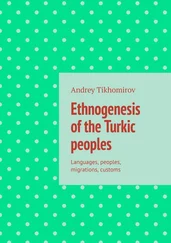“Your highly welcome letter was brought to me yesterday.”
This was followed a little more than a decade later by Tutonish(1902):
dau shal not kil, dau shal not stiel dau shal not baer falsh vitnesu gegn dauo nabor.
This turned into Niu Teutonish (1906):
m seen eena d likt af ds velt een kold vintri morgn an d 3a dag of eenam.
“I saw first the light of this world one cold wintry morning onas the 3rd day of January.”
While Molee did seek “to re-unite all teutonic people into one language within fifty years,” he emphasized that his goal was not to dominate over others but to stick up for a language heritage that was under threat. He didn’t think it was fair that Esperanto and other heavily Latin-based languages were the most popular proposals for an international language. These “commerce languages,” as he called them, were geared toward people who did a lot of international business and could probably afford translators anyway. He wanted to help out the poor and uneducated American workingman who was being held back because he could read only “cheap newspapers and light stories of romance” because everything of higher value was full of fancy Greek words like “cacophonous” that necessitated a college education or an expensive dictionary.
By the time he published Niu Teutonish, Molee was sixty-one years old and had suffered through a series of disappointments. He had married, lost an infant son, and divorced. He moved through Minnesota, the Dakotas, and Iowa, occasionally investing in tracts of land but always selling just before prices went up. At one point he took up with a widow of means, but she got tired of supporting him, and he went on his way. He traveled to the South with a plan for establishing a Norwegian colony there, but nothing came of it. He later moved to Washington State, where he tried his plan again in the town of LaCrosse by advertising in the Norwegian newspapers of the Midwest. He did attract many Norwegians to the area, and the settlement eventually became a success, but only after he had left it to try his fortunes in Tacoma.
In 1907 he sold off some land and sailed for Europe, where he traveled for a few years, meeting with language professors and discussing his Teutonic language ideas. A professor in Oslo helped arrange an audience for him with King Haakon of Norway. Molee reported in his autobiography that “e king ws very friendly t me, who ws only a student v language n a newspaper correspondent, he bid me sit down in a costly cushion chair, we talked together for half an hour mostly about uniting together e Swedish, norwegian n danish languages.”
After Molee returned to the States, he published Altutonish and then a few more versions of his language. In the last paragraph of his autobiography, which he completed in 1919, he endorses the right of a person to end his own life when he is no longer useful to society. As he entered his eighties, he apparently felt that he had done all he could. According to his 1928 obituary, “He ended his life with a shot on the 28th of September in the hotel in Tacoma where he had spent the past ten years.”
The politeness of the Norwegian king not with standing, Molee could not interest anyone in his language projects, but that did not stop him from devoting his life to them. He was a man of big plans, one of many such men at the dawn of the twentieth century and one of many who never saw their plans go anywhere.
The language invention craze had attracted all sorts of hucksters, charlatans, and dreamers. Edmund Shaftesbury, who was all three, published his Adam-Man Tongue in 1903. Shaftesbury’s real name was Webster Edgerly, but he was also known as Dr. Ralston, the founder of Ralstonism, a health food cult that advised its followers to eschew hot baked goods, walk on the balls of their feet, and eat “bacterial” foods, like raw eggs. (He also promoted whole-wheat cereal, and when the Purina Company asked him to endorse their wheat cereal, he agreed on the condition that it be named after him. The success of the product led to the company being renamed Ralston Purina.) He wrote over fifty self-help books on subjects from “sex magnetism” to “immortality” to “the Ralston brain regime”—and they were chock-full of racist rants, naive pseudoscience, and curmudgeonly attacks on modern society.
He also dabbled in real-estate speculation and the theatrical arts, though without much success. His book Lessons in the Art of Acting —a catalog of the emotions and how to portray them—recommends “Frenzy” be indicated “by inclining the head backward, looking up; and clutching the hair with both hands.” This may help explain why a critic for the New York Times , in reviewing a play that Edgerly wrote, produced, and starred in, said the “originator, concocter, and financial backer of this forlorn enterprise is a misguided person, who evidently labors under the triple hallucination that he is a poet, a dramatist, and an actor.”
His Adam-Man Tongue—so named because it is “the language of man (the human race) founded upon the primitive (Adam) roots and terms that are the watchwords of universal speech”—is nothing more than a bizarre-looking version of English. He provides a sample dialogue:
MR. gentle: It b 3preti wqm tsdα ( It be pretty warm today .)
MR. bluff: Wut b 3preti wqm? ( What be pretty warm ?)
MR. G: W 4, du wedu. ( Why, the weather .)
MR. b: Wut wedu?
MR. G: Dis wedu?
MR. b: WΔI, hθ b 3dis wedu eni difrunt frqm eni udu?
MR. G: It b 3wqmer.
MR. b: Hθ ds ys no it b 3?
MR. G: Ik just supoz’d it b 3'd.
MR. b: B 3nqt du wedu du $αm evriver?
MR. G: W 4nqn, it b 3wqmer in $om plα$ez Δnd kolder in uduz.
And so on.
In the second era of language invention (that of the simplified international language), for every upstanding, respected member of society who had a language plan (the chemist Wilhelm Ostwald, the mathematicians Louis Couturat and Giuseppe Peano, the linguist Otto Jespersen), there were two or three Shaftesburys leaving their impression on the public perception of language creation. People who had once reacted to the practice with interest, bemusement, or mild irritation began to react with revulsion. One prominent psychologist had his own, distinctly Freudian explanation for this reaction: the drive to create languages was traceable to “displaced anal affects (ultimately derived from the satisfaction gained by the production of faeces or flatus).” The language inventors were smearing it on the walls, and the public was getting disgusted.
Pretty soon anyone with prestige to protect stayed as far away as possible. The torch was passed to brave souls who were either too passionate about their missions to concern themselves with respectability or too out of touch with reality to care.
And so began the third era of language invention. It is less well-defined than the first two. There was no unifying theme or idea behind the languages, no particular problem the inventors were trying to address. There were only individuals, working on the fringes of society, each with a separate, lonely agenda. They came up with further iterations of regularized Latin or English, or Esperanto-type hybrids. Some created philosophical-type languages, believing they were the first to have thought of such a thing. However, a few found a completely new approach, one that hadn’t been tried before because it was so obviously unworkable. Only someone on the outside, someone heedless to calls for common sense, would be crazy enough to try it—a pictorial symbol language. One of those who did, in an unlikely turn of events, found success. But it was not the type of success he hoped for. He spent the rest of his life sabotaging his success and any respect he had earned from it. In the process he nearly destroyed those who had helped him to gain the recognition he always wanted.
Читать дальше












